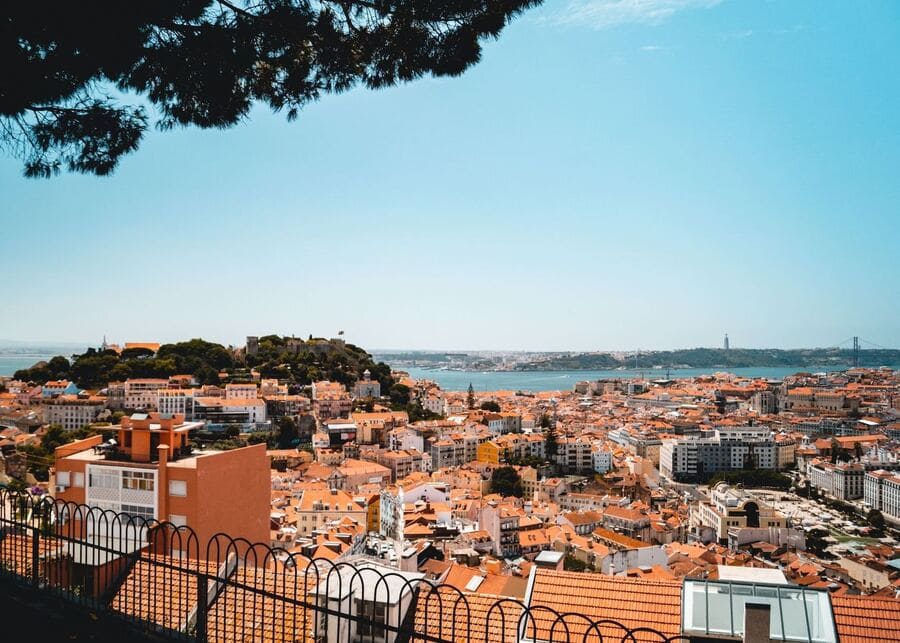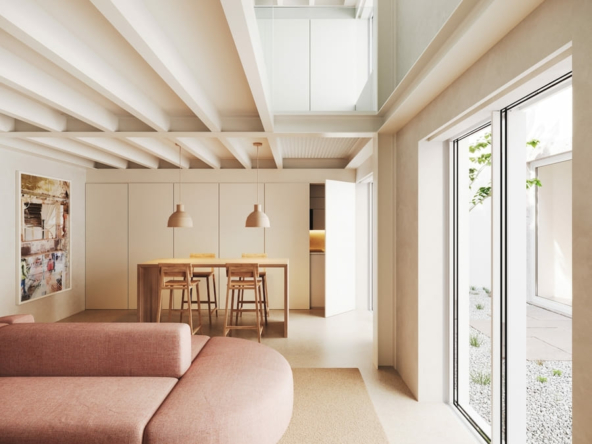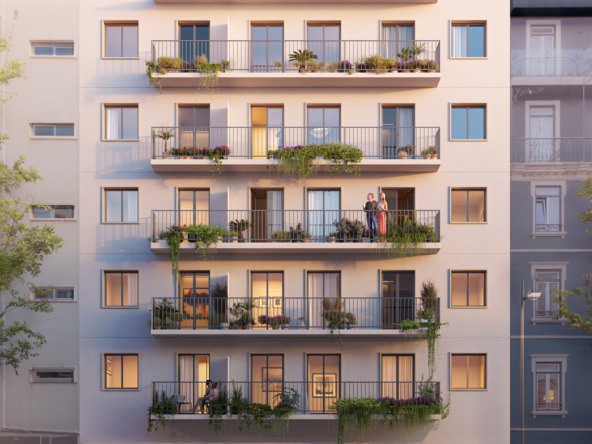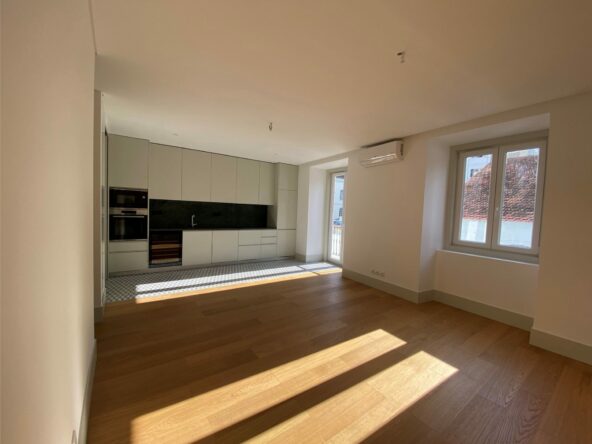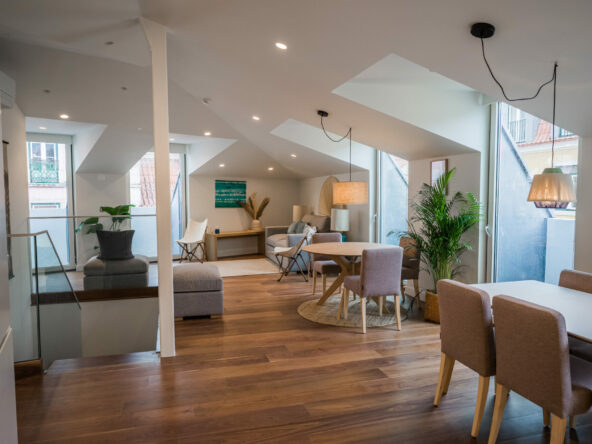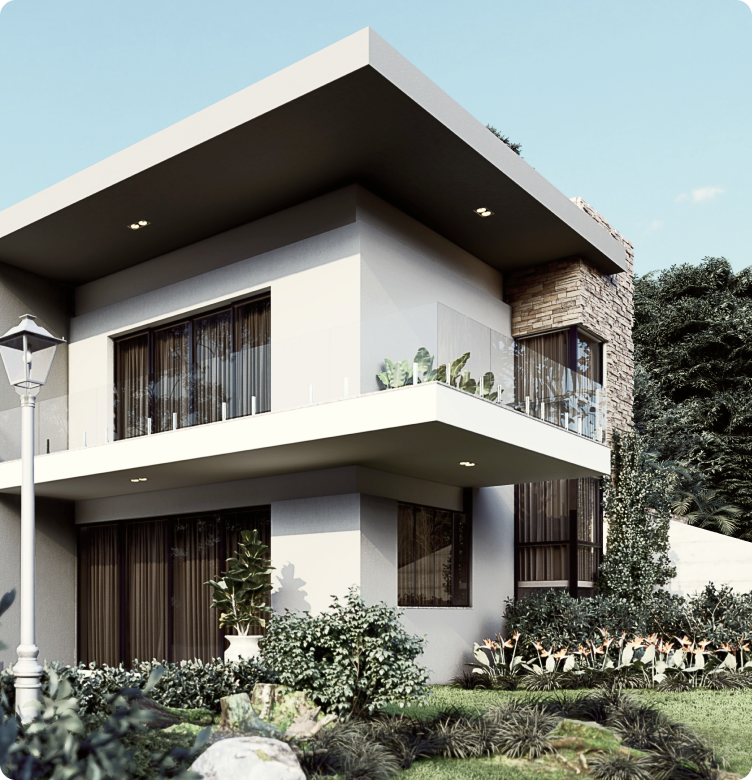Lisbon is captivating the world. This vibrant capital in Western Europe, blessed with stunning landscapes and an alluring climate, has become a hotspot for tourism and, increasingly, property investment.
This comprehensive Lisbon Real Estate Investment guide offers expats drawn to the capital city’s charming Atlantic Ocean views, rich cultural tapestry, and high-quality lifestyle the best advice for foreign property ownership.
We will provide you with the essential information to navigate the Portuguese real estate market, explore rental yields, property, and rental prices in Lisbon, and discuss the top neighborhoods to target for a successful investment in Portugal’s captivating capital.
Exploring Lisbon's Real Estate Market
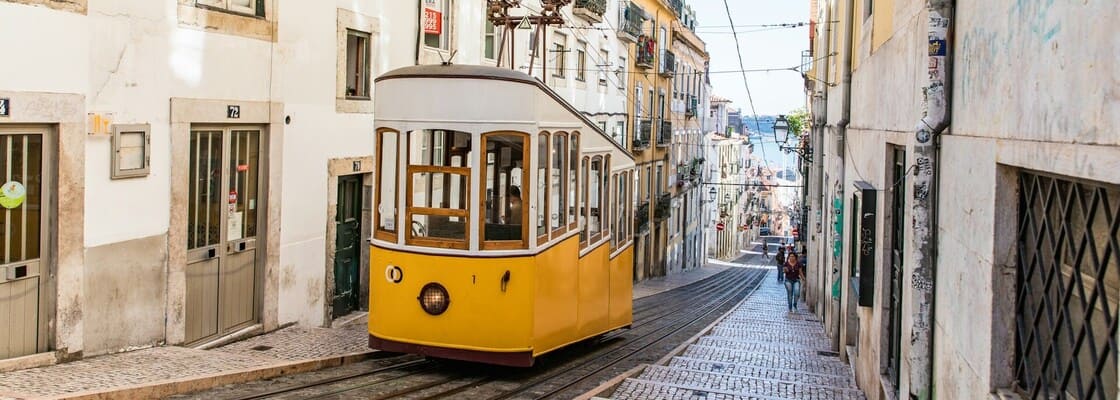
Foreigners buy property in Lisbon for more than just a postcard-perfect backdrop. As a real estate investor, you’ll find various properties to choose from, catering to every taste and budget.
Whether you are searching for your second or third home, an investment property, or are looking to relocate, real estate in Lisbon has become a magnet for investors and expats. Plus, compared to other European cities, housing prices in Lisbon remain affordable despite the increase in property prices over the past few years.
Lisbon is also a major tourist destination, which has fueled Portugal’s thriving tourism industry and Portuguese economy. With the growing tech sector and the influx of digital nomads, Lisbon also holds great potential for investors looking to purchase property for long-term rental opportunities. Considering these factors, foreign interest in buying property in Portugal has increased, which has caused the Lisbon real estate market to have a 7.6 percent annual increase in the House Price Index (HPI) reported in the third quarter of 2023.
This growth will likely continue due to Portugal’s affordable prices and investor-friendly policies, with no restrictions on foreign property ownership. Beyond the economic benefits, Lisbon offers an exceptional quality of life. The city’s charm, cultural richness, and affordability make it an ideal place to live, further propelling the property market. So, whether you’re seeking a luxurious lifestyle or a strategic investment opportunity, Lisbon’s real estate market has something to offer.
Property prices in Lisbon
Lisbon’s thriving property market presents a fantastic opportunity for investors. Fueled by high demand and a booming tourism industry, Lisbon’s real estate has consistently grown over the past few years. This trend is expected to continue, making it a city with exceptional Return on Investment (ROI) potential. The table below provides a snapshot of the average price for property across several Lisbon neighborhoods.
Districts | Average Price (€/sqm) |
Ajuda | €5,043 |
Alcântara | €6,324 |
Alvalade | €5,820 |
Areeiro | €5,187 |
Arroios | €5,885 |
Avenidas Novas | €7,126 |
Beato | €4,587 |
Belém | €6,548 |
Benfica | €4,473 |
Campo de Ourique | €6,367 |
Campolide | €6,657 |
Carnide | €4,469 |
Estrela | €7,231 |
Lumiar | €5,016 |
Marvila | €5,530 |
Misericórdia | €7,021 |
Olivais | €4,587 |
Parque das Nações | €7,728 |
Penha de França | €4,402 |
Santa Clara | €3,955 |
Santa Maria Maior | €6,700 |
Santo António | €8,117 |
São Domingos de Benfica | €5,667 |
São Vicente | €5,018 |
Rental yields in Lisbon
Lisbon’s real estate market is flourishing, making it a magnet for foreign investors seeking high returns. The city boasts a robust rental market, with an average rental yield of 6.70 percent across the Lisbon Metropolitan Area. However, some neighborhoods offer even more attractive yields, promising a solid return on investment.
The table below provides a detailed breakdown of current rental yields in various Lisbon neighborhoods to help you identify the most lucrative neighborhoods for buying Lisbon real estate.
Lisbon Neighborhood | 2023 Rental Yields (%) |
Alcântara | 5.4 |
Benfica | 5.2 |
Campolide | 4.8 |
Lumiar | 5.1 |
Marvila | 6.6 |
Olivais | 5.5 |
São Domingos de Benfica | 4.7 |
Alvalade | 4.2 |
Areeiro | 4.5 |
Arroios | 5.5 |
Avenidas Novas | 3.9 |
Campo de Ourique | 5.0 |
Estrela | 5.4 |
Misericórdia | 5.2 |
Parque das Nações | 4.7 |
Penha de França | 5.5 |
Santa Maria Maior | 5.6 |
Santo António | 4.7 |
São Vicente | 5.3 |
Is now the time to buy property in Lisbon?

Lisbon’s property market continues to flourish, making an investment in the city and surrounding areas highly advantageous. With an exceptional quality of life, promising returns on investment, and robust growth prospects, purchasing property in Lisbon is a strategic choice.
However, buyers should be aware that the asking price often differs from the actual sales price, with the latter typically being lower, playing out nicely for buyers. Sellers may be motivated by deadlines or other factors, presenting opportunities for negotiation and potentially securing a better deal. While it’s rare, there’s also a possibility that the sales price could exceed the asking price. Understanding these dynamics and working with experienced professionals can help buyers navigate the Lisbon property market effectively and capitalize on opportunities for investment success.
A Guide to the Best Areas to Invest in Lisbon Real Estate

International property investors looking to purchase real estate in Lisbon will find that residential properties throughout the Portuguese capital offer all the charm, convenience, and comfort to suit your needs. Lisbon, Portugal, is one of the famous European cities offering buyers stunning investment properties at reasonable prices.
In the sections below, we will explore some of the best residential neighborhoods to consider buying property in Lisbon, Portugal.
Baixa
Baixa and Chiado are popular historic Lisbon neighborhoods known for their authentic charm and vibrancy. These two neighborhoods are a dynamic duo that offers investment property potential throughout the cobblestone streets that lead to grand squares adorned with neoclassical facades. Baixa attracts locals, digital nomads, and tourists with the lively Rua Augusta shopping street and the majestic Praça do Comércio harbor-facing plaza.
Meanwhile, Chiado offers a slower-paced artistic ambiance, drawing creatives and connoisseurs to its eclectic cafes and boutiques. Chiado is also known to be a key shopping area in Lisbon, with captivating stores offering local and international brands. With seamless connectivity and rich culture, the opportunity to buy property in Baixa and Chiado is the gateway to Lisbon’s timeless allure and potential for a great return on investment.
Alfama and Graça
Lisbon’s Alfama and Graça neighborhoods offer unique opportunities for real estate investments. These areas are famous for their winding streets, Fado music, and breathtaking cityscapes.
The vibrant culture and lifestyle in Alfama and Graça have made them top tourist hotspots and expanded the housing market thanks to increasing interest from property buyers looking to acquire foreign real estate. Alfama boasts slightly higher real estate prices and property value but exudes an undeniable authenticity, while Graça offers more affordable prices with stunning panoramic views from its hilltop perch.
Príncipe Real
Nestled within the Santo António parish, Príncipe Real’s allure and sophisticated facade attract luxury buyers interested in purchasing foreign real estate. Its graceful architecture, adorned with intricate details, sets the stage for a neighborhood characterized by cosmopolitan European charm sought-after by buyers with refined taste.
Part of Príncipe Real’s unique beauty is the trendy boutiques, chic design retail outlets, and culinary delights of top-quality restaurants that line the neighborhood’s streets. Located just five minutes from the Lisbon city center, this neighborhood offers a prime opportunity for real estate investors seeking an excellent financial investment and is the epitome of urban elegance and timeless allure.
Avenidas Novas
Avenidas Novas is a Lisbon district where contemporary living blends seamlessly with historical charm, making it a prime locale for real estate investments. Its broad avenues, adorned with a mix of modern structures and storied towers, form the backdrop for a thriving community sought after by young professionals and families alike.
Avenidas Novas exudes convenience through its central location, excellent transportation links, educational institutions, and essential services within arm’s reach. For investors seeking stability and growth, Avenidas Novas promises a lucrative opportunity, with its potential for stable rental income and property appreciation supported by the district’s hub of business activity, cosmopolitan ambiance, and abundant amenities that draw expats and tourists from across the globe.
Parque das Nações
Nestled along the shimmering waterfront, Parque das Nações is one of Lisbon’s iconic neighborhoods that attract savvy real estate investors. This district showcases a fusion of contemporary architecture, verdant gardens, and leisure havens. Parque das Nações offers a compelling array of advantages for those eyeing international investments, such as its strategic locale near Lisbon’s major transport routes and international airport.
The Parque das Nações district offers sun-filled apartments and houses, easy access to amenities, and spectacular views of the Tagus River and Vasco da Gama Bridge, which elevate the allure of this modern oasis.
Lapa and Santos
Lapa and Santos are coveted havens for discerning real estate investors in the heart of Lisbon’s Estrela parish. These neighborhoods offer elegant mansions, art galleries, and a lively nightlife that appeals to various professionals, artists, and expats.
Beyond short-term tourist rentals, the districts boast high demand from affluent locals, presenting a robust landscape for long-term investment endeavors. Families seeking tranquility find solace amidst lush parks, cafe culture, and the proximity to esteemed educational institutions. The blend of characteristics makes these neighborhoods prime destinations for astute investors seeking long-term stability and short-term returns.
Campo de Ourique
Ideal for lifestyle buyers and families, Campo de Ourique offers an array of amenities, from local markets to esteemed international schools, making it a perfectly well-rounded neighborhood for a laid-back lifestyle. Its proximity to Lisbon’s vibrant city center ensures seamless access to cultural delights and business opportunities while being able to enjoy the tranquility of suburban bliss. Campo de Ourique exudes a quaint village ambiance, boasting cobblestone streets, historic architecture, and a close-knit community vibe.
Marvila
Once dominated by warehouses, Marvila has transformed into a dynamic real estate hotspot. The neighborhood’s strategic location east of Lisbon offers stunning views of the Tagus River and proximity to urban attractions in the capital.
Marvila attracts young families, expats, and digital nomads with its loft-style apartments and modern dwellings, catering to diverse lifestyles. The neighborhood is also home to the United Lisbon International School, which offers the American National Curriculum to students between the ages of three and 18. As a growing district, Marvila offers residential options as well as lucrative commercial prospects, making the area a promising investment.
The Greater Lisbon Area
Ajuda is a historical gem in the greater Lisbon area near Belém. The neighborhood boasts attractions like the Ajuda National Palace and Botanical Garden. This neighborhood offers a blend of residential charm and tourist appeal, making it ideal for ventures in short-term rentals or boutique businesses capitalizing on its cultural significance.
Meanwhile, outside Lisbon, Belém, Sintra, Cascais, and Oeiras beckon investors with unique advantages. Belem’s rich history and tourist influx present opportunities in hospitality, while Sintra’s UNESCO heritage status promises a lucrative market for property ventures. Along the Lisbon Coast, Cascais tempts with luxury real estate options and an international community, while Oeiras boasts tech industry connections and residential desirability near the capital.
These greater Lisbon Metropolitan Area neighborhoods offer value and space, appealing to families seeking tranquility and vibrancy. With historical landmarks, green spaces, and proximity to both Lisbon and scenic beaches, investing in Belém, Ajuda, or Restelo opens doors to diverse opportunities and lifestyles.
Practical Information About Living in Lisbon

Now that you have an idea about property prices, rental yields, and a few of the best neighborhoods to buy property in Lisbon, Portugal, it’s a good idea to become more acquainted with the Portuguese capital’s inner workings. Below, we will share some practical information about living in Lisbon, including a little bit more about the climate in Portugal, international schools in the city, and healthcare options.
Climate
Lisbon’s proximity to the Atlantic Ocean moderates the city’s temperatures, ensuring summers remain pleasantly warm without becoming stifling, making it an inviting destination year-round. Lisbon experiences mild winters when temperatures seldom dip below 10 Degrees C (50 Degrees F), while summer temperatures average 29 Degrees C (84 Degrees F) and 29 Degrees C, particularly in August, the city’s warmest month.
Lifestyle, culture, and entertainment
Living in Lisbon offers a dynamic fusion of cultural richness, leisure, and coastal charm. The city features many lifestyle and leisure options, from its vibrant nightlife to its exquisite dining scene at a remarkably affordable cost of living.
Renowned for its high quality of life and safety, Lisbon is the seventh safest country in the world according to the Global Peace Index in 2024. Lisbon is a haven of diverse experiences. Its proximity to stunning beaches like Praia de Santo Amaro and Praia de Carcavelos makes water sports an appealing pastime.
Shopping enthusiasts revel in the blend of high-end boutiques on Avenida da Liberdade and chic stores in Príncipe Real. With a population of 2.9 million and a welcoming international community, Lisbon exudes a cosmopolitan allure coupled with coastal serenity.
Education
There are eight international schools in Lisbon city and a further 20 in the greater Lisbon Metropolitan Area that offer students a selection of curricula and teaching methods, including schools that follow the British and American curricula. This makes Lisbon the perfect city for expat families looking to settle in one of the best European countries that offers high-quality education options. Lisbon is also home to reputable universities like the University of Lisbon and NOVA University Lisbon.
Healthcare
Lisbon’s healthcare system is a pillar of quality and accessibility, catering to residents and expats. With a robust infrastructure comprising public hospitals and private clinics, comprehensive medical services are readily available. Residents, including foreigners, benefit from the National Health Service (SNS), ensuring access to essential healthcare.
Moreover, private health insurance options offer supplementary coverage at notably affordable rates. Whether utilizing public healthcare through SNS or seeking care at private institutions, Lisbon’s citizens enjoy peace of mind knowing that their medical needs are met efficiently and excellently, enhancing the city’s appeal as a health-conscious destination.
Public transportation
Lisbon has an efficient public transport network consisting of buses, trams, trains, and the iconic yellow trams, facilitating easy city navigation. Commuters can get an affordable metro monthly pass at €40, offering unlimited access to all modes of transportation. Additionally, Lisbon International Airport connects the city to various destinations worldwide, offering convenient international travel options.
Key Considerations for a Lisbon Real Estate Investment
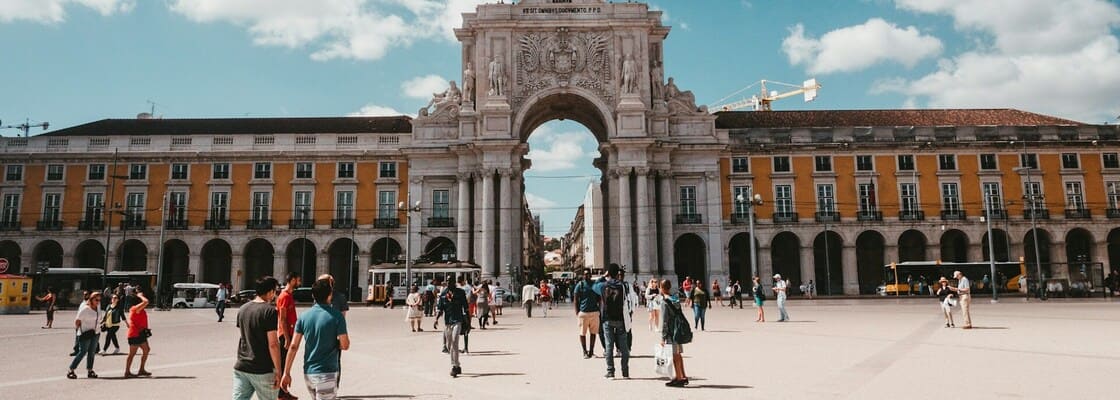
Buying real estate in Lisbon requires understanding certain financial and legal aspects of the property purchase journey and the assistance of real estate agencies and other real estate professionals.
In the sections below, we will explore a few of the key considerations you should be aware of before you buy property in Lisbon.
Understanding the market
Understanding the intricacies of the Lisbon real estate market is vital before making any investment decisions. Given any country’s susceptibility to volatility and economic shifts, investors must assess the potential return on investment while factoring in macroeconomic variables like inflation rates.
Navigating the Portuguese real estate landscape requires a deep understanding of market dynamics, including property prices, demand-supply equilibrium, regulatory frameworks, and emerging trends. Thorough research and analysis are essential to mitigate risks associated with investment. Collaborating with a local real estate agent and other property professionals can offer invaluable expertise and help you make informed choices when you invest in the dynamic Lisbon real estate market.
Due diligence
Thorough due diligence is essential when investing in the Lisbon real estate market to mitigate risks and ensure a successful transaction. This involves meticulously assessing the property’s legal aspects, such as title deeds, permits, licenses, and potential encumbrances.
Working with a real estate lawyer proficient in local regulations can help navigate legal complexities and uncover hidden risks. Verifying the credibility and financial stability of the seller is paramount to prevent fraudulent transactions or disputes. Seeking assistance from a seasoned real estate professional streamlines the due diligence process, safeguarding investors’ interests and ensuring a smooth investment journey in Lisbon’s dynamic real estate market.
Legal considerations
Navigating the legal aspects of purchasing property in the Lisbon real estate market is paramount to avoid pitfalls. Working with a knowledgeable real estate lawyer provides crucial guidance in understanding legal implications and ensuring a smooth transaction.
A real estate lawyer will conduct thorough checks on both the property and the seller, mitigating the risk of encountering legal complications in the future. Additionally, enlisting the assistance of a property surveyor ensures a comprehensive assessment of the property’s condition, safeguarding you against potential interior or exterior issues.
Financial and tax considerations
When investing in the Lisbon real estate market, it is essential to consider the financial and tax implications. Working with a real estate agency or buyer’s agent will also provide support throughout the buying process, help you understand the legalities, compare property prices, and assist with acquiring a Portuguese mortgage.
To buy property in Lisbon, Portugal, you will need to acquire a Número de Identificação Fiscal (NIF) from the local tax office. It is a Portuguese tax identification number that you will need to have to make any major financial transactions in the country. Additionally, you will only be able to open a Portuguese bank account if you have a NIF number.
Below, we will look at the taxes and fees you will need to pay before, during, and after you buy property in Lisbon. We will also explore the Portuguese Capital Gains Tax, which varies based on your residency status and impacts profits from property sales.
Taxes during the purchase process
Property purchase tax (IMT)
Property purchase tax (IMT) must be accounted for during acquisition. The Imposto Municipal sobre as Transmissões Onerosas de Imóveis (IMT) (Municipal Tax on Onerous Transmissions of Real Estate) is a property transfer tax levied over the purchase price of the real estate in Lisbon you’re investing in and must be paid when buying the property. The tax rate ranges between 0 and 10 percent.
The 0 to 8 percent range depends on the price, location, property type, and your intended use for the property, while the fixed rate of 10 percent will apply in cases where the buyer has connections with territories that benefit from favorable taxation schemes, known as blacklisted jurisdictions.
Considering your budget early aids property selection and facilitates the mortgage process, which can be time-consuming. Working with a real estate professional ensures comprehensive understanding and compliance with financial and tax considerations, optimizing investment decisions in the Lisbon real estate market.
Additional fees during the purchase process
Fees such as agency fees, VAT on the property purchase price, and additional expenses like Stamp Duty and Notary Fees should also be considered during budget planning.
Stamp Duty
The Imposto do Selo or Stamp Duty is an additional transaction cost property buyers are charged on deeds, contracts, bank mortgages and loans, paperwork, and property titles, as a buyer. The Stamp Duty rate for purchasing a property in Portugal is 0.8 percent of the value of the business or the value of the property and is levied on whichever value is higher. If the property is donated, the Stamp Duty for the transaction will be 10 percent.
Notary fees
You will also need to budget for Notary fees. The Notary is the private entity responsible for providing you with the official documents that prove you are the owner of the property, and their fee usually amounts to between €500 and €1,000.
Taxes after the purchase
Immovable Property Tax (IMI)
After you have successfully purchased residential real estate in Lisbon, you will need to pay the annual Imposto Municipal sobre Imóveis (IMI), also referred to as the Municipal Property Tax. Each of Portugal’s municipalities has its own tax rate, and IMI is levied on the property tax value (VPT), not on the price you paid for the property. Generally, the Immovable Property Tax ranges from 0.3 to 0.45 percent for urban properties. Keep in mind that the range can also go up to 0.5 percent. The IMI rate applied to rural or rustic buildings is 0.8 percent.
Additional to IMI (AIMI)
Real estate owners who have purchased a property in Portugal that is valued at more than €600 000 will be subject to Portuguese wealth tax (AIMI). AIMI tax can be calculated as follows:
0.7 percent tax on owning property valued between €600,001 and €1 million
1 percent tax on property valued between €1mil and €2 million
1.5 percent tax on property if its total value is above €2 million
An overview of the buying process
Whether investing in commercial properties or purchasing a residential property in Lisbon, the buying process in Portugal consists of five steps.
Step 1: Secure financing for your property
Assess your finances, explore mortgage options from Portuguese banks, and understand associated costs such as taxes, legal fees, and property registration expenses.
Step 2: Find the perfect property
Set a budget and research the Portuguese real estate market. Focus on location, amenities, and rental potential and seek guidance from real estate professionals.
Step 3: Make an offer
Once you find a suitable property, negotiate an offer with the seller. Consider having a real estate professional represent your best interests during negotiations.
Step 4: Signing the Promissory Contract (CPCV)
After an offer is accepted, a Promissory Contract known as the Contrato de Promessa de Compra e Venda (CPCV) in Portugal finalizes the deal. The CPCV is a written agreement between parties involved in selling property in Portugal. It is accompanied by a 10 percent deposit and signed in front of a Notary.
Step 5: Signing the Escritura
The Escritura, or Final Deed, officially transfers property ownership. Signed before a Notary, it involves paying remaining balances and fees. After signing, the buyer becomes the official owner, concluding the process.
Tips for Investing in Lisbon Real Estate
If you are considering buying property in Lisbon, you should ensure that you fully understand the real estate market in the capital city of Portugal before you purchase property. Here are a few tips to help you secure investment in Lisbon real estate.
Research: Conduct a comprehensive study on the real estate market, rental demand, and potential rental income across various neighborhoods.
Find the right location: Determine where you want to buy, considering appealing amenities, transportation options, and attractions to attract potential tenants (should you be looking for an investment property).
Assess profitability: Evaluate the profitability by analyzing the property price and expenses such as taxes, maintenance costs, and mortgage payments compared to projected rental income.
Understand legalities: Acquaint yourself with rental laws and guidelines specific to the area to gain insight into local regulations. This will ensure adherence to legal requirements and minimize the risk of encountering legal complications.
Work with a professional: Consider enlisting professional assistance by consulting with a knowledgeable real estate agent or buyer’s representative who is well-versed in the local market landscape.
Prepare for challenges: Prepare for obstacles by anticipating and strategizing for potential challenges such as property maintenance, tenant turnover, and legal obligations. Additionally, adopt a long-term perspective by evaluating the property’s sustained rental viability and capacity to continue attracting tenants over time.
Find Your Dream Property with BE Global

BE Global Properties is the discerning property investors’ gateway to meticulously curated properties that transcend ordinary listings. Look no further when searching for your next dream home or investment property in the Portuguese luxury real estate market.
Explore our exclusive listings and work with our experts who offer market insights for smart investment choices and exceptional customer service to find the property investment perfectly tailored for your lifestyle ultimately.
Contact BE Global Properties today and start your journey to find your global haven.
Frequently Asked Questions About Real Estate in Lisbon, Portugal
What are the benefits of investing in real estate in Lisbon?
Lisbon is one of the best European cities to invest in now because of its booming tourism industry, competitive property prices, and potential to secure a solid return on your property investment.
How has the Lisbon real estate market performed over the past few years?
The Lisbon real estate market has seen significant growth over the past few years, thanks to factors that include affordable property costs compared to other Western European capitals and the fantastic quality of life the city offers.
Lisbon is also a major tourist destination, which has fueled Portugal’s thriving tourism industry and Portuguese economy. In the third quarter of 2023, the property market saw increased foreign interest in buying property in Lisbon and a 7.6 percent annual increase in the House Price Index (HPI).
What are the legal requirements for foreigners buying property in Lisbon?
In addition to obtaining the Número de Identificação Fiscal (NIF), which is the Portuguese tax identification number that enables you to make financial transactions in the country, you will need the following documents as a foreigner buying property in Lisbon:
- Photo ID: A valid identification document that verifies your identity.
- Contrato Promessa de Compra e Venda (CPCV): The buying contract or property deed that outlines the terms and conditions of the property purchase.
- Energy Certificate: This document provides information about the property’s energy efficiency and must be presented to you by the seller.
- Imposto de Selo: The stamp duty payment is a tax the Tax Authority requires for property transactions.
- Caderneta Predial: The land registry certificate contains information about the property, including its location, boundaries, and registered owner. Issued in paper format, the land registry certificate serves as evidence of the legal status of a property as of the date of issuance and compiles and describes the current registrations applicable to that property.
Can foreign investors obtain residency or citizenship by investing in Lisbon real estate?
The Portugal Golden Visa program previously allowed foreign investors to obtain residency and citizenship through real estate purchases. However, due to significant changes in the program, it is no longer possible to invest in real estate and qualify for the Golden Visa program since 7 October 2023. However, buying real estate in Lisbon is still a lucrative investment opportunity due to the affordable property prices and high property value.
What types of properties are available for investment in Lisbon?
Lisbon offers a great selection of residential properties for investment, including apartments with scenic views and in prime locations, villas along the Lisbon coast stretching to Cascais, country homes in idyllic locations such as Sintra, just over an hour’s drive away from the city center, and luxury properties in areas like Avenida da Liberdade and Príncipe Real.
Foreign buyers can also invest in commercial properties like offices, retail spaces, warehouses, and tourism real estate opportunities.
What are the best neighborhoods in Lisbon for real estate investment?
The best neighborhoods in Lisbon to buy property in Lisbon include Baixa and Chiado, known for their historic charm and dynamic culture, attracting locals and tourists alike. Alfama and Graça offer authentic experiences with stunning views, while Príncipe Real appeals to luxury buyers with its sophisticated allure.
Avenidas Novas combines modern living with historical charm, making it ideal for young professionals and families. Parque das Nações provides contemporary amenities and excellent transport links, and Lapa and Santos offer elegant residences and vibrant nightlife. Lastly, Marvila, a transformed district, attracts diverse lifestyles with loft-style apartments and commercial prospects.
What are Lisbon’s expected rental yields and property appreciation rates?
In 2023, the rental income yields in the Lisbon Metropolitan Area grew to 6.7 percent, while specific neighborhoods experienced significant rental yield growth as indicated below:
- Alcântara – 5.4 percent
- Benfica – 5.2 percent
- Campolide – 4.8 percent
- Lumiar – 5.1 percent
- Marvila – 6.6 percent
- Olivais – 5.5 percent
- São Domingos de Benfica – 4.7 percent
- Alvalade – 4.2 percent
- Areeiro – 4.5 percent
- Arroios – 5.5 percent
- Avenidas Novas – 3.9 percent
- Campo de Ourique – 5.0 percent
- Estrela – 5.4 percent
- Misericórdia – 5.2 percent
- Parque das Nações – 4.7 percent
- Penha de França – 5.5 percent
- Sata Maria Maior – 5.6 percent
- Santo António – 4.7 percent
- São Vicente – 5.3 percent
Are any specific areas in Lisbon recommended for real estate investment?
A few of the best neighborhoods to purchase property in Lisbon, especially if you are interested in luxury property, include Estrela, Avenidas Novas, Misericórdia, Santa Maria Maior, Santo António, and Cascais and Estoril.
What tax implications are for foreign investors in Lisbon real estate?
Foreign investors buying property in Portugal have to pay the same property taxes as locals. However, you will need help from a local expert when navigating taxes. The taxes foreigners purchasing property in Lisbon will be liable for include, but are not limited to, Property purchase tax (IMT), Stamp Duty and Notary fees, and Municipal Property Tax.
Why invest in Lisbon?
Investing in Lisbon real estate offers numerous benefits, making it a top choice for savvy investors as it’s one of the most secure and attractive real estate markets in Europe. Known for its security and attractiveness, Lisbon boasts some of the lowest real estate prices among European capital cities. Additionally, the city provides high rental income yields, particularly in the bustling downtown tourist areas. Discover why Lisbon is a prime investment destination today.
What is the process for buying property in Lisbon as a foreign investor?
The buying process in Portugal consists of the following five steps for foreign investors and Portuguese citizens.
- Step 1: Secure financing for your property
Assess your finances, explore mortgage options from Portuguese banks, and understand associated costs such as taxes, legal fees, and property registration expenses.
- Step 2: Find the perfect property
Set a budget and research the Portuguese real estate market.
- Step 3: Make an offer
Once you find a suitable property, negotiate an offer with the seller.
- Step 4: Signing the Promissory Contract (CPCV)
After an offer is accepted, a Promissory Contract, known as the Contrato de Promessa de Compra e Venda (CPCV) in Portugal, finalizes the deal.
- Step 5: Signing the Escritura
The Escritura, or Final Deed, officially transfers property ownership.
How do Lisbon’s property taxes affect real estate investment?
Lisbon’s property taxes significantly impact your Lisbon real estate investment by adding financial obligations such as the property purchase tax (IMT), which ranges from 0 to 10 percent based on various factors, and the annual Immovable Property Tax (IMI), ranging from 0.3 to 0.45 percent. These taxes, along with Stamp Duty and Notary fees, must be carefully considered to optimize investment decisions.
How does the Lisbon real estate market compare to other European cities?
Compared to other European cities, Lisbon’s real estate market remains relatively affordable despite recent increases in property prices. The capital city of Lisbon offers more affordable rent prices than other Western European capitals, making it attractive for both residential and commercial properties.
Finding Lisbon real estate for sale is appealing due to Portugal’s investor-friendly policies, with no restrictions on foreign property ownership. This growth is expected to continue, driven by affordable prices and economic benefits. Beyond financial advantages, Lisbon also offers an exceptional quality of life, making its real estate market stand out among European cities.
How to find the best real estate agents in Lisbon for investment purposes?
Potential property owners buying property in Lisbon should start by researching local agencies and browsing online listings. Look for a real estate agency with experience helping foreigners buy property in the capital city. Be Global Properties has carefully created the ultimate platform where they handpick the very best properties on the market.
Speaking with real estate agents or buyers’ agents, such as Goldcrest, can also assist you in finding the best residential neighborhood for you. Portugal is a gem in Western Europe, and finding the right agent will ensure a smooth investment process.
Looking for properties in Portugal? Check our latest listings below!
Lioz Apartments
- €727
- Beds: 1-2
- Baths: 1-3
- Apartment
Varandas Living
- Starting from €497K
- Beds: 1 - 3
- Baths: 1 - 2
- REF number ( for search form ): 1
- Apartment

